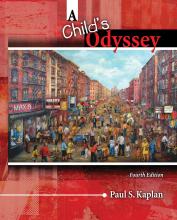Search Results: 1 - 10 of 89
display
Interpersonal Communication: Building Rewarding Relationships
By: Melissa B Wanzer, Kristen C Eichhorn, Candice Thomas-Maddox
about product
Interpersonal Communication: Building Rewarding Relationships
Author(s): Melissa B Wanzer, Kristen C Eichhorn, Candice Thomas-Maddox
Interpersonal Communication: Building Rewarding Relationships reflects the countless societal, cultural, and technological changes that have influenced the ways in which we experience, discuss, and research relationships in a variety of contexts. Interpersonal Communication: Building Rewarding Re...African-American Art Supplement
Author(s): Clarence Talley, Tracey Moore, Ann Johnson
In this Supplement to accompany African-American Art, each chapter contains an overview, objectives, chapter outline, vocabulary terms, list of artists, slides, study questions, matching questions, true/false questions, projects, discussion questions, and artist spotlights, all of which are intended...An Introduction to the Aquatic Insects of North America
Author(s): Richard Merritt, Kenneth Cummins, Martin B Berg
An Introduction to the Aquatic Insects of North America serves as a standard guide on the immature and adult stages of aquatic and semiaquatic insects of North America. It offers information on the distribution, tolerance values, trophic relationships, and functional adaptations of aquatic insects t...History of Philosophy
Author(s): Jeffrey W Zents
A Child's Odyssey
Author(s): Paul S Kaplan
A Child’s Odyssey offers students the combination of clear explanations of central concepts, interesting and sometimes humorous examples and vignettes, and an emphasis on issues in child development. Now in a 16 chapter format, A Child’s Odyssey provides greater coverage of physical and cognitive...About Art
Author(s): Andrew S Arbury
INQUIRY INTO PHYSICAL SCIENCE: A CONTEXTUAL APPROACH VOLUME 3: THE AUTOMOBILE: WILL THE GAS-DRIVEN AUTOMOBILE EVER BECOME A THING OF THE PAST?
By: Roger Nanes
about product
INQUIRY INTO PHYSICAL SCIENCE: A CONTEXTUAL APPROACH VOLUME 3: THE AUTOMOBILE: WILL THE GAS-DRIVEN AUTOMOBILE EVER BECOME A THING OF THE PAST?
Author(s): Roger Nanes
New material in this edition includes: The Electrochemical Cells Activity has been updated and extensively rewritten. The discussion of electric and hybrid vehicles as well as fuel cells in the narrative text has been rewritten and updated to reflect the technological advances made since the first ...Microscale and Miniscale Laboratory Investigations in Organic Chemistry
Author(s): Paul G Johnson, Sujata Patil
, basic_html








